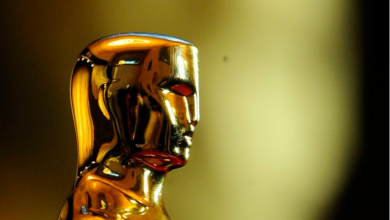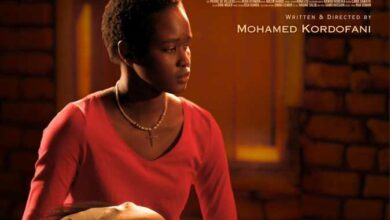Directed by Ehab Lamei and produced by Hany William, this 94-minute film attempts to comically address the otherwise serious issues of military coups and political dictatorships.
Set in the fictitious Republic of Bambuzya, a state official named Shanan (played by omnipresent television/movie star Hassan Hosny) assassinates the national leader and assumes the presidency in his stead. Shanan quickly reveals his true dictatorial colors, however, decking out his palace with portraits of fascist leaders such as Adolph Hitler and Benito Mussolini.
Shanan chooses a wife from among his political supporters who soon delivers him twin boys. The brothers, Aziz and Hakim (both of whom are played by up-and-coming actor Khaled Sarhan), are eventually groomed to inherit the dictatorship from their aging father.
Aziz grows up to be a playboy. The mustachioed Hakim, meanwhile, becomes a politician, who ends up privatizing Bambuzya’s national assets to swell his own personal fortune. At one point, he even sells off his father’s favorite coffee mug.
Although the acting remains credible throughout the movie, the action scenes are simply unconvincing. The movie drags on with a few odd twists until it arrives at an abrupt — and unexpected — conclusion, with Dictator Shanan, influenced by Hakim, ordering Aziz’s exile to Egypt after repeated sex scandals. Bambuzya, meanwhile, is gripped with hunger and police brutality, leading to student demonstrations, peasant revolts, workers’ strikes and street riots against the ruling regime.
The moral of El-Dictator is probably this: dictatorships, by their very nature, must either be inherited from father-to-son or established by military coups against a previous ruling junta. Either way, though, it’s the people who must inevitably suffer.
The movie, a tepid “political comedy,” will hardly have you rolling on the floor with laughter. The screenplay could have been better written, while a bolder, clearer message could have been delivered to Arab viewers — most of who are painfully familiar with the topic.
A number of previous local productions have taken a more sophisticated — and funnier — approach to the subject of political authoritarianism. These include the Mohammad Sobhy play Takhareef (“Delusions”), the Talaat Zakariya film Tabakh el-Rayyes (“The President’s Chef”), the Hany Ramzy film Zaza, and the Adel Imam play Al-Zaeem (“The Great Leader”).
Perhaps the boldest of these, Zaza, portrays an autocratic president who rules the country by fraud and heavy-handed police tactics, only to be democratically replaced by a simple citizen vowing to address the needs of the masses.
Against these earlier and similarly-themed productions, El-Dictator simply doesn’t compare — either in terms of comedy or in terms of its political message.




